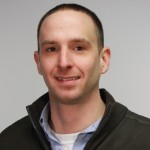Ohio Grower: Why Water Quality Matters To Me
Fresh off the first anniversary of last summer’s unfortunate Toledo Water Crisis — which was largely attributed in mainstream media reports to phosphorus runoff from Maumee Bay watershed area farming operations — the Ohio Soybean Council, Ohio Small Grains Marketing Program and Ohio Corn Marketing Program are distributing the following testimony from Ohio grower Bob Peterson, entitled “Why Water Quality Matters to Me.”
The following is Peterson’s full letter:
“Hot summer days recall memories of kids playing in the yard with sprinklers, watering the garden, drinking lemonade and fishing at the lake. Our country has not had to worry about water and seldom has there been a time in our history when safe water wasn’t abundant and inexpensive. Today we hear about pollution in the Chesapeake Bay, hypoxia in the Gulf of Mexico, algae blooms in Ohio, water lawsuits in Iowa, and drought in California.
Many are quick to place blame and sources claim that ‘this’ or ‘that’ is the problem. Please do not misunderstand me. The science is important. I’m proud of the checkoff investments our corn, soybean and wheat organizations have made in research and education, along with other stakeholders such as The Ohio State University and Ohio Farm Bureau. But as I sit in my farm office on a rainy day, I admit that kind of work seems really far away from my farm. What should I be doing here, today, right now? After considering that question, I believe there are three thoughts that will guide my farm and hopefully yours now and in the future.
First, water issues are not going away and it won’t always be about phosphorus and nitrogen. Experts have been warning for years that demand and cost for clean water will continue to increase. Water rights will be questioned and actions that affect its quality will be scrutinized. We need to take actions now that will protect our families and our farms future.
Second, agriculture will be a big part of the solution. Every farmer I know is committed to not only growing a bountiful crop or raising the best livestock but making our piece of the world a better place. While Ohio Agriculture can’t be the only ones at the table in order to address this challenge, the stage is set for us to take the lead. Now we need to get it done.
Start by getting your fertilizer certification license. Ask your fertilizer retailer to be 4R certified. Develop a nutrient management plan, test your soil and know your runoff risk. Pay close attention to the results coming out of the most current research and know what it means to your farm. Challenge yourself to adopt one new conservation practice on your farm this year. These simple first steps have helped reduce my farm’s environmental impact and improve its profitability.
Finally, remember the reason we do this. Getting caught up in all the negativity is easy. The focus for me on my farm is to remember that my motivation for growing healthy food AND protecting the soil and water has not and will not change.”






